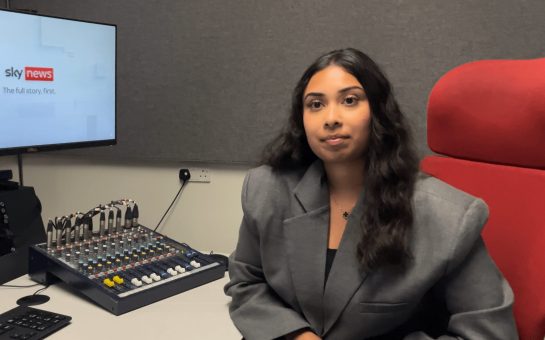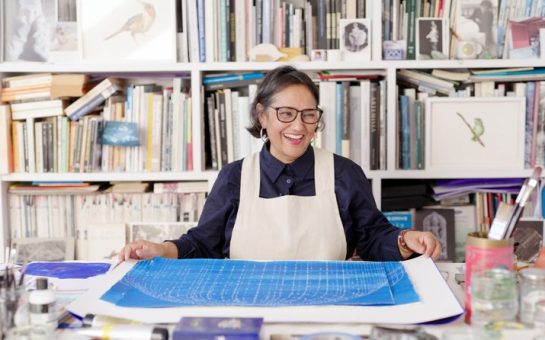By Anna Aguilar
August 10 2020, 18.25
Follow @SW_Londoner
Although circumstances are not as strict as they were during lockdown, many people continue to rely on videoconferencing and social interactions are limited.
Covid-19 infections and second waves continue to surge throughout Europe, and many companies have decided to keep their offices closed or with very limited occupation.
Lisa Talia Moretti, digital sociologist at Ministry of Justice UK, explains why videoconferencing while social distancing is important, and why some people may have found it difficult to socialise once lockdown restrictions were lifted.
“We create our identity with other people. We need people around us to create our own sense of self, because we negotiate that sense of self with the people around us. So during isolation we still have to create and engage with other to refine our social identities,” she said.
Ms Talia Moretti says the fact we want to put on our video camera in certain instances is because feel like we’re not being understood or cannot express ourselves the way we want to.
“We want others to see how we feel and see how they are reacting so we can adjust our emotions, our identity and how we present ourselves.”
When lockdown started back in March, businesses and schools had to virtualise their processes. Suddenly everyone was on Zoom. We curiously peaked into our colleague’s homes, met their cats and gave them an insight into our personal life that they might have otherwise never had.
There was no time to think about whether asking students to turn their cameras on was problematic, and there was no time to legislate protective measures for workers – decisions had to be made quickly.
Outside of the home, or from their windows and balconies, people were also quick to film their neighbours denouncing them breaking lockdown restrictions. There was a noticeable shift of what the acceptable forms of surveillance were, a temporary lift on boundaries.
All of these sudden shifts in how we shared data virtually brought concerns on the increase in surveillance culture. But Ms Talia Moretti argues that, although we need to be careful with how we share information, we cannot do entirely without surveillance.
“We need some kind of surveillance in society because we need to see how others are behaving for us to understand how we need to self-regulate. Society is based on maintaining a status quo,” said Ms Talia Moretti.
The latest Black Lives Matter protests during the pandemic are an example of a mass movement relying almost entirely on virtual signals.
She added: “Even in those instances people were looking to others to find how they should behave in this situation. Seeing my friend at the protest on Instagram signals to me that it’s okay for me to do that.
“In moments of change it’s really important for us to see people, because it allows us to understand what the new norms are and how we can work together to adjust to this new normal.”
Filling the gaps
Our increased online presence is also filling in the gaps for our limited sensorial experiences.
“The sense of touch is one of the very first senses that a human experiences, transferring that emotion through skin with a mother. And now we’re in the absence of touch and the absence of bumping into people or hugging someone or just being able to physically be in their presence,” Ms Talia Moretti said.
“Video is really important, as a way to substitute that sense of touch, it’s a kind of virtual touch.
“The fact I can see your hair and I can see your earrings and the colour of your shirt tricks my brain and maximises feelings of connection. So that desire and very human need to connect supersedes the fear of being seen.
“Social media is also a new way for people to document achievements and documenting achievement is very intrinsically connected to our reward systems. If we didn’t have an audience, and we weren’t able to showcase what we were doing to others, a lot of people wouldn’t do it”
But documenting all your movements can also come at a cost.
Ms Ms Talia Moretti explained: “Shoshana Zuboff [author of Surveillance Capitalism] talks about how, through surveillance, social media companies have been able to make money of us.
“They have gamified the human mind, which is very manipulable once you understand the intrinsic rewards systems and how they’re connected to ambition and motivation.
“There’s a lot of studies that have showed that the sense of connection you feel with somebody through social media is often not very fulfilling. It’s a sugar rush.
“Even though it’s a great way to document and show achievements and to motivate others, it can become a competition. It can be can be very unfulfilling and dangerous for people who have addictive personalities.”


